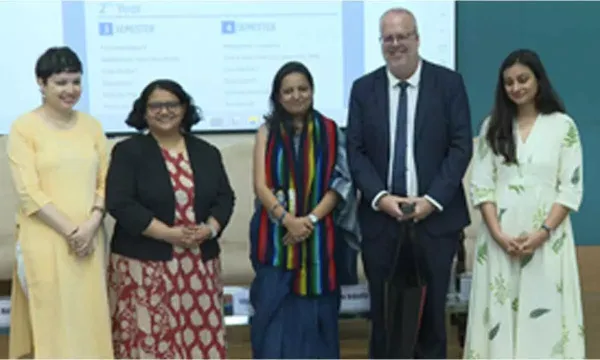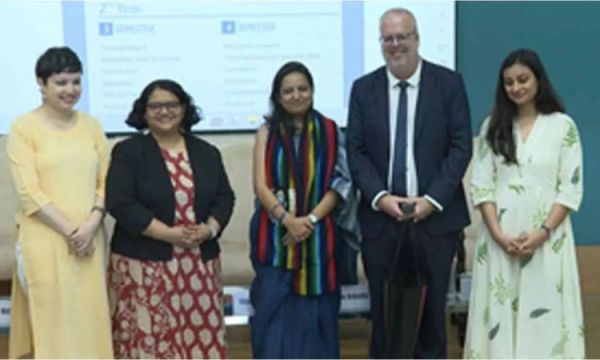
In August, the Jindal School of Psychology & Counseling (JSPC) at O.P. Jindal Global University (JGU) will launch a brand-new two-year Counseling Psychology program.

The program is based on the internationally recognized scientist-practitioner model and was created to address the major mental health issues facing India. It combines research, ethical standards, theoretical knowledge, and hands-on training to give students the tools they need to succeed in the counseling psychology field.
At a ceremony on the JGU campus, Prof. (Dr.) Surabhika Maheshwari of the University of Delhi’s Indraprastha College for Women officially launched the M.Sc. degree.
“Psychology is enjoyable, but it’s also challenging and demands dedication and hard work,” she remarked. The discipline is organized around the super-dynamic, constantly-evolving human being, in a world that is always changing and chaotic, and amid the never-ending struggles of trying to be a better person today than you were yesterday.
What difficulties does counseling face in India, then? It has to be decolonized first and foremost. A textbook’s description of a condition’s symptoms may vary from the situation that the person with the disease lives in.
Decolonizing entails recognizing the many diseases and symptoms as they manifest in contexts that are peculiar to a culture. It is necessary to preserve psychology’s diversity.
“There are three main components to the Master of Counseling Psychology degree. The first is the core curriculum, which aims to provide the counseling and therapy professions their theoretical and fundamental underpinnings.
The second is practicum courses, which provide practical experience via classroom instruction, fieldwork, and community service.
According to Prof. (Dr.) Manjushree Palit, Associate Dean of the Jindal School of Psychology and Counseling, “the third is research, where students complete a dissertation that critically explores some aspects of counseling psychology.”
“I am very optimistic about the new Counseling Psychology degree. It provides an evidence-based and culturally appropriate education. I concur with many who have discussed college students’ reluctance to ask campus counselors for assistance, including our own JGU students.
“We need to confront and dispel the stigma associated with mental health issues and asking for assistance. This degree is a fantastic step in that direction, and my team is eager to implement it globally. “I am sure that JSPC will achieve the goals set forth for the new counseling psychology program,” said Prof. (Dr.) Upasana Mahanta, O.P. Jindal Global University’s dean of admissions and outreach.
In India, where one in seven people suffer from mental disease or discomfort, there is an urgent need for mental health experts, according to Prof. (Dr.) Derick H. Lindquist, dean of the Jindal School of Psychology and Counseling. I’m thrilled that JSPC is offering counseling psychology as its first postgraduate program. The two-year M.Sc. program is developed to guarantee that every student receives demanding in-class education together with both in-person and online practical training. I have no doubt that graduates will possess the skills and knowledge necessary to launch their own practice or get a job in the mental health industry, whether it be in a government agency, clinic, non-profit, or educational institution. Training the future generation of Indian psychologists is one of our school’s main goals, and this endeavor supports that goal.